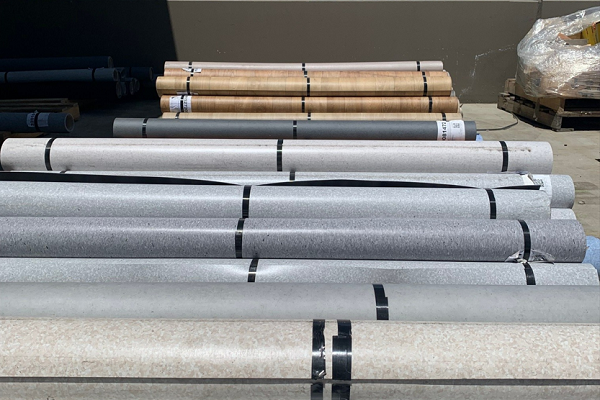Flooring industry releases design for nation’s first stewardship scheme

The Australian Resilient Flooring Association (ARFA) has released the proposed design for ResiLoop, Australia’s first national stewardship scheme for resilient flooring.
Resilient floorcoverings such as sheet vinyl, linoleum or rubber, Luxury Vinyl Tiles and hybrid tiles are durable products with use lifespans of 30 years or so. With the market for these products having grown significantly over the past decade, largely through imports, ResiLoop’s goal is to develop an industry-supported process to recover and recycle waste from these products in Australia.
ARFA president Dan Lovell says the support he’s received following the signing of the ‘Collective Action Statement’, which included over 40 stakeholders of the flooring industry, only builds momentum for the scheme and its implementation.
“Suppliers, contractors, retailers, installers and builders all have something to benefit from this program,” Dan says.
“We’ve been buoyed by the incredible support we’ve had for our Collective Action Statement. ResiLoop is a clear demonstration of the commitment and collaboration to develop and implement a solution. Only through collective action will we have an enduring and measurable impact.
“As stewardship, waste reduction and landfill diversion are being prioritised by consumers, policy-makers and regulators, you will see more major tenders demanding evidence of recycling, meaning those not delivering stewardship outcomes will be left behind.”
ResiLoop is a timely solution and will provide a practical pathway for waste from commercial and residential construction away from landfill and towards alternative durable products. The scheme describes a process for efficiently collecting scheme members’ product waste from construction sites through a network of collection points and will be funded through a levy per square metre on relevant products, paid by distributors who join the scheme.
It is estimated that the construction industry generates about nine million kilograms of resilient flooring waste from installations every year and the scheme will aim to recycle at least one million kilograms annually, with the expectancy that recycling rates will increase as the scheme expands and attracts new participants and develops end markets for the recyclate and solutions for the more challenging end-of-life waste streams.
Supported by funding from the Australian Government through the National Product Stewardship Investment Fund, Resiloop will contribute to Australia’s ambitious goal to transition to a circular economy by 2030. It will also include funding for research and development to grow onshore recycling capacity and capability, including the development of products that can use the recycled material.
